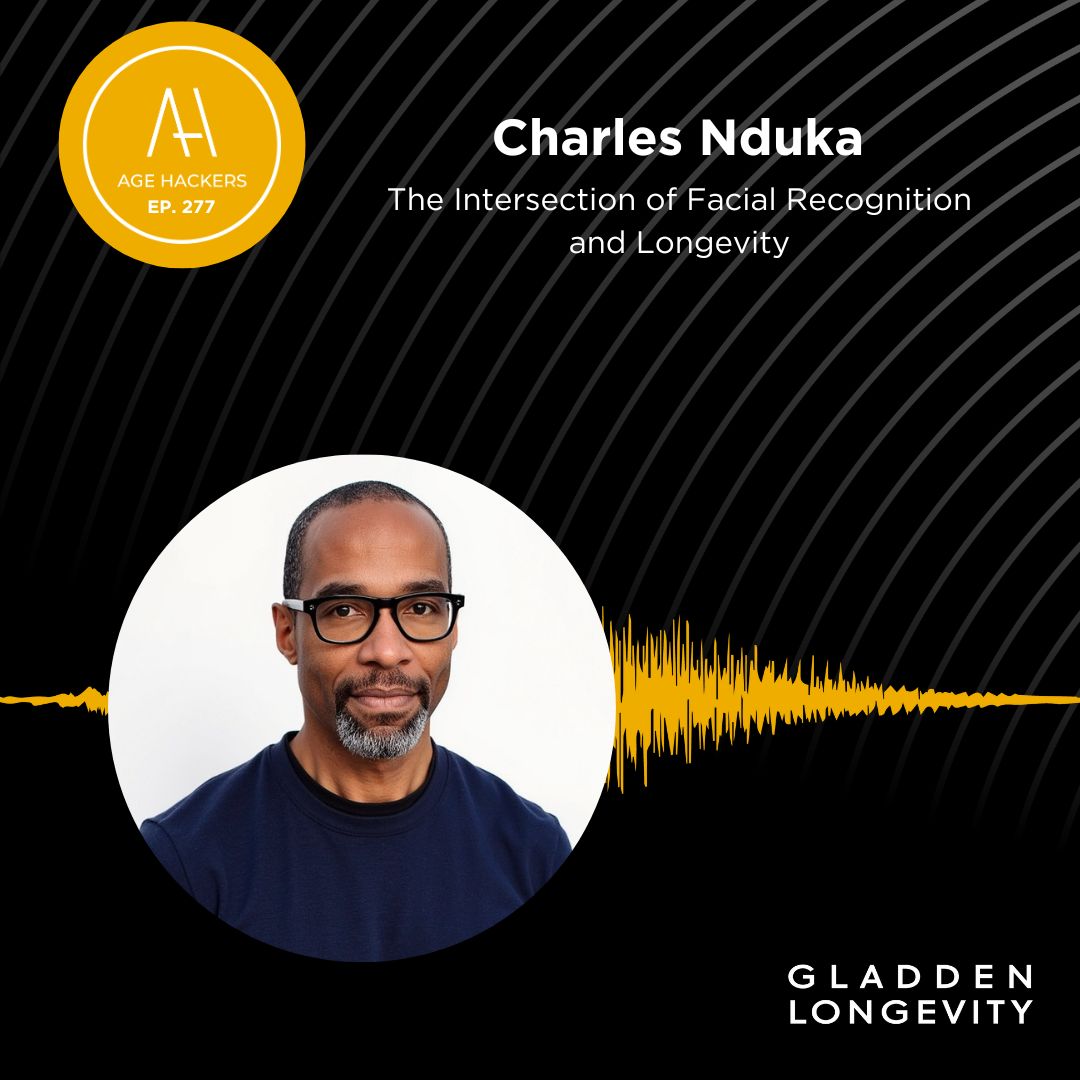
The Intersection of Facial Recognition and Longevity - Episode 277

Gladden Longevity Podcast -- formerly Living Beyond 120
Shownotes Transcript
In this episode of the Gladden Longevity Podcast, Dr. Jeffrey Gladden interviews Charles Nduka, a plastic surgeon specializing in facial reconstruction. They discuss the profound impact of facial paralysis on patients' lives, the importance of psychological support in recovery, and the innovative technologies being developed to aid rehabilitation. The conversation highlights the interconnectedness of facial expression, emotional health, and social engagement, emphasizing the need for a holistic approach to treatment. In this conversation, Charles Nduka discusses innovative research in mood disorders, the use of technology for diet monitoring, and the implications of eating behaviors on weight management. He emphasizes the importance of empowering individuals with information to make better health decisions and explores the intersection of health, longevity, and joy. The conversation also touches on the future of wearable technology and its potential to enhance quality of life by measuring emotional and physical well-being.
For The Audience:
- Use code 'Podcast10' to get 10% OFF on any of our supplements at https://gladdenlongevityshop.com/ !
Takeaways
Facial paralysis significantly affects patients' emotional well-being.
Restoring facial expressions is crucial for patients' social interactions.
Psychological support is essential in the recovery process.
Patients' perceptions of their appearance can vary widely.
Social engagement plays a vital role in mental health and recovery.
Innovative technologies can enhance rehabilitation for facial paralysis.
Understanding patient perspectives is key to effective treatment.
Loneliness can have a detrimental impact on health and longevity.
Facial expressions influence emotional feedback and perception.
A multidisciplinary approach improves patient outcomes. You can detect differences between depressed versus non-depressed people just from facial data.
The glasses are primarily used for research and diet monitoring.
The technology captures images of food and analyzes calories and macros.
Eating slowly can help the brain recognize fullness faster.
The glasses provide feedback to slow down eating rates.
Empowering individuals with information can lead to better health decisions.
The technology is low risk and focuses on providing valuable insights.
Understanding the relationship between diet and symptoms can be transformative.
Measuring joy and emotional health is crucial for quality of life.
Future advancements will focus on personalized health solutions.
Chapters
00:00 Introduction to Facial Recognition and Longevity
02:50 The Impact of Facial Paralysis
05:52 The Role of Psychological Support in Recovery
08:58 Understanding Patient Perspectives
11:57 The Importance of Social Engagement
14:53 Innovations in Rehabilitation Technology
18:00 The Science Behind Facial Expressions
23:08 Innovative Research in Mood Disorders
24:31 Revolutionizing Diet Monitoring with Technology
28:10 Understanding Eating Behaviors and Weight Management
30:14 Empowering Individuals with Informative Technology
32:36 The Intersection of Health, Longevity, and Joy
36:30 Measuring Joy and Quality of Life
41:43 Future Plans and Technological Advancements
To learn more about Emteq Labs:
Website: https://www.emteqlabs.com/
LinkedIn: https://www.linkedin.com/in/charles-nduka-53055218/?originalSubdomain=uk
Reach out to us at:
Website: https://gladdenlongevity.com/
Facebook: https://www.facebook.com/Gladdenlongevity/
Instagram: https://www.instagram.com/gladdenlongevity/?hl=en
LinkedIn: https://www.linkedin.com/company/gladdenlongevity
YouTube: https://www.youtube.com/channel/UC5_q8nexY4K5ilgFnKm7naw